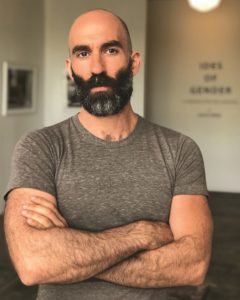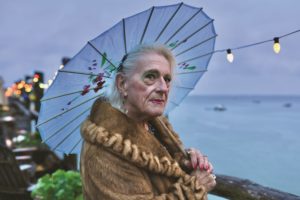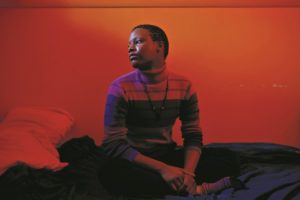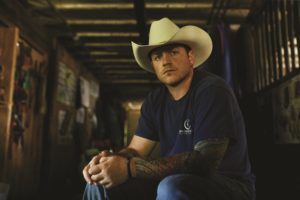Zach Oren is not cagey about who he is. Even though there’s little biographical information available about him online, he’s forthright in explaining how he got to be the person to create a series of beautiful, expressive photographs of trans people throughout the U.S. — 17 of which will be presented in an exhibit opening Wednesday at CUSP Gallery in Provincetown, along with quotations from the subjects. When your project is explicitly about identity, being up front is a good idea.

“I’m a cis queer male,” he says by phone from his home in West Hollywood, Calif. Oren was born in Israel to Jewish parents, his mother of Egyptian descent, and his father, Hungarian. “My father is a career criminal, spent most of his life in prison,” he says. “My mom was a police officer in the Israeli army, and she met him when he was being interrogated. We moved to New Jersey in 1990, then Hollywood. I was brought up by a single mom all over L.A. She cleaned houses. I was bullied, made fun of. My chosen family is my family.”
Oren has followed a circuitous path to art photography. “It’s the love of my life,” he says. “I went to junior college in the Valley, studied journalism so I could use the darkroom. After that, I got little jobs in photography. I worked as an assistant to a wedding photographer, I did head shots, I dealt with models with their attitudes and hair and makeup. Eventually, I realized, ‘This sucks. I’m not interested in this.’ I stopped working in photography for 13 years.”
When he’d picked up a camera, it was “just for me.” He supported himself by being a waiter, which is how he continues to fund his projects today. “I like to travel, and once I got my green card, it was all about me photographing everybody.”
Well, not everybody. “I was not interested in photographing beautiful cis white men,” he says. “It’s safe and predictable, and I lose contact with it right away.”
He wanted to do photo essays. He went to Cuba and East Asia and photographed series on the people there. He did a portfolio on his mother, including a startling shot of them naked together in Joshua Tree National Park. He worked on a series, titled “Bob & Bobby,” about an older HIV-positive interracial couple.

He wondered what to do next. “I knew I didn’t want to follow the same person over and over. I knew I wanted it to be queer. I work in West Hollywood, and there’s a big trans community here. I didn’t like the photographic representation I saw of the trans community. It was either pandering or fetishizing.”
And so, “Ides of Gender” was born four years ago. “It’s all about visibility and responsibility,” he says. “Even though I had trans friends, I had to educate myself. You have to be aware of your privilege, your intention.”
The project grew and grew. “It took on a life of its own,” Oren says. “The more I photographed, the more I needed to keep photographing. I realized how important representation is.” He’s done more than 430 portraits in 49 states. The work has been exhibited in Los Angeles and Delaware, and now Provincetown, where Oren has been before with his partner, who lives in New York.

There have been other series on trans people, such as “To Survive on This Shore,” featuring photographs and interviews by Jess T. Dugan and Vanessa Fabbre, which was exhibited at the Provincetown Art Association and Museum in May 2019. Those pieces, done with a large-format camera and institutionally backed, are more studied than Oren’s, which feel spontaneous. Think Robert Frank’s The Americans.
“Definitely my work is more photojournalism, documentary photography,” he says. “It’s just me and my 35mm camera. I take your portrait in your setting with whatever light is available. It’s the most sincere form of expression for me. I like the person getting lost. I tell them to look through the camera. I like stolen moments.”

Despite the dangers trans people face being out in some parts of the country, many of Oren’s subjects are happy to post images of themselves online — especially the younger ones. “There’s nothing like a trans person telling you they feel seen,” he says. “It tells me I’m doing it the right way. Every time somebody lets me into their space, I try not to take anything for granted. I share my images with everyone I photograph. We created it together.”
To Thine Own Self Be True
The event: “Ides of Gender,” an exhibit of photographs by Zach Oren
The time: Wednesday, Sept. 15 through Oct. 3 (closed Mondays and Tuesdays); reception Thursday, Sept. 16, 6 to 8:30 p.m.
The place: CUSP Gallery, 115 Bradford St., Provincetown
The cost: Free



